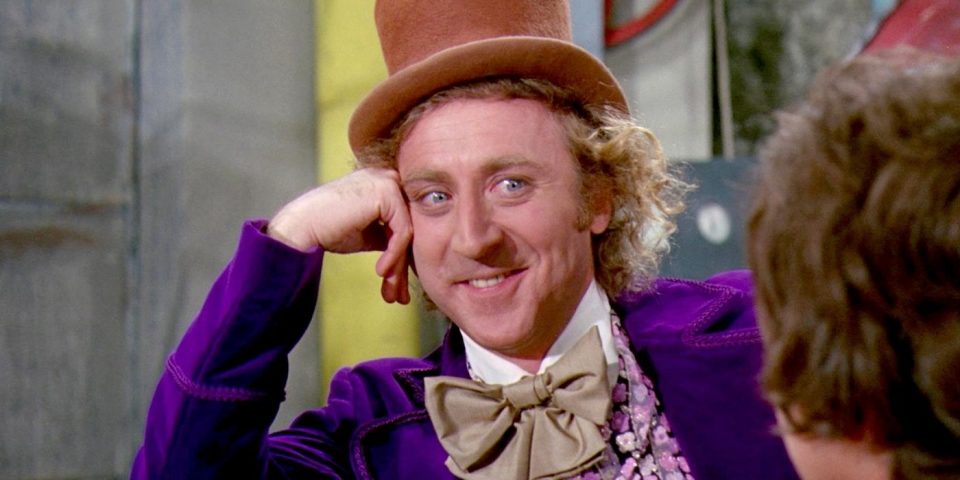The 1971 film adaptation of Charlie and the Chocolate Factory is beloved by fans, but not by author Roald Dahl for various reasons.
While many people prefer the original 1971 film adaptation of Roald Dahl’s 1964 children’s novel Charlie and the Chocolate Factory over the 2005 remake with Johnny Depp, few people know that Dahl actually disowned Willy Wonka and the Chocolate Factory for various reasons. However, he wasn’t the only author who despised the film adaptations of their books. Most notably, Rick Riordan preferred a blank screen instead of The Lightning Thief, which he believed ruined his life’s work.
Director Mel Stuart received inspiration from his daughter after she read Charlie and the Chocolate Factory and wanted her father to make a film for it. However, Dahl believed Stuart had no talent. While Dahl was paid $300,000 to write the screenplay, it is rumored he delivered an unfinished product, which was only the beginning of the issues on the set. Dahl signed total artistic control over to Warner Bros., a decision he would later regret.
The Casting Of Gene Wilder Upset Dahl
Stuart considered the late Gene Wilder the perfect fit for Willy Wonka. However, Wilder wasn’t even in Dahl’s top three choices. Dahl’s first choice was radio show host and fellow writer, Spike Milligan, although the production team believed Milligan was too weird for the role. Another one of Dahl’s prospects was Peter Sellers, who actually pleaded with Dahl for the part. Sellers is known for his portrayal of Chief Inspector Clouseau in the Pink Panther series.
The reason behind Dahl’s distaste for Wilder is that he believed he was too “pretentious” for the role of Willy Wonka. “Gene Wilder was rather too soft and didn’t have a sufficient edge. His voice is very light and he’s got that rather cherubic, sweet face. I think [Roald, below] felt…there was something wrong with [Wonka’s] soul in the movie — it just wasn’t how he imagined the lines being spoken,” stated Dahl’s friend, Donald Sturrock, in an interview with Yahoo! News.
Dahl Disliked Charlie and the Chocolate Factory’s Title Change
Dahl’s published children’s novel Charlie and the Chocolate Factory, not Willy Wonka and the Chocolate Factory. Since The Quaker Oats Company financed the 1971 film, they wanted to promote their upcoming chocolate bar called the Wonka Bars. However, when Wonka Bars melted while still on the shelves, the product was taken off the market. If viewers look closely, they can see “Packed by The Quaker Oats Company Chicago, Illinois” when Charlie opened the bar with the Golden Ticket. Although, Nestle currently owns The Wonka Candy Company.
Dahl Resented the Focus On Willy Wonka Over Charlie
The film’s title changed from Charlie to Willy Wonka, which reinforced Dahl’s belief that the movie focused too much on Wonka and less on his true main character, Charlie Bucket. It’s clear Dahl wouldn’t have enjoyed the upcoming prequel with Timotheé Chalamet, which focuses on the early days of Willy Wonka’s chocolate career. There are several key differences between the book and the film in regards to Charlie. For starters, Charlie’s dad is very much alive in the book. Also, that iconic Fizzy Lifting Drink scene with Grandpa Joe and Charlie? Yep, it never happened in the book.
The NAACP Condemned The Oompa Loompas
Willy Wonka and the Chocolate Factory and Dahl faced backlash from the National Association for the Advancement of Colored People (NAACP) for their alleged racial stereotype of Oompa Loompas. When the NAACP took offense, Dahl apologized and stated Charlie was originally supposed to be Black. “For Roald, this conclusion came as a complete shock. Not only had he never intended this fanciful detail to cause offence, he had also quite failed to appreciate fully the ferocity of the social tide that eddied around almost every public project within in the United States at that time,” stated Sturrock in his Dahl biography titled Storyteller.
Willy Wonka’s Music Was Too Happy For Dahl
The songs “Candy Man” and “Pure Imagination” from the film’s soundtrack were hits and both covered by countless musical artists. The musical score was even nominated for an Academy Award. However, it just wasn’t Dahl’s cup of tea. “He felt it was a little too saccharine,” Sturrock revealed. “I picked up from other people that he found it too sappy and sentimental. It’s interesting because I don’t think he realized what a strong effect the music had had on a generation of kids,” stated Sturrock in the same interview.
Now, fans can’t help but wonder if Dahl would have enjoyed the Johnny Depp version more than Gene Wilder. However, Netflix recently acquired the Roald Dahl Story Company and now owns the rights to stories like Matilda and Charlie and the Chocolate Factory. Here’s hoping they don’t mess it up.
About The Author



